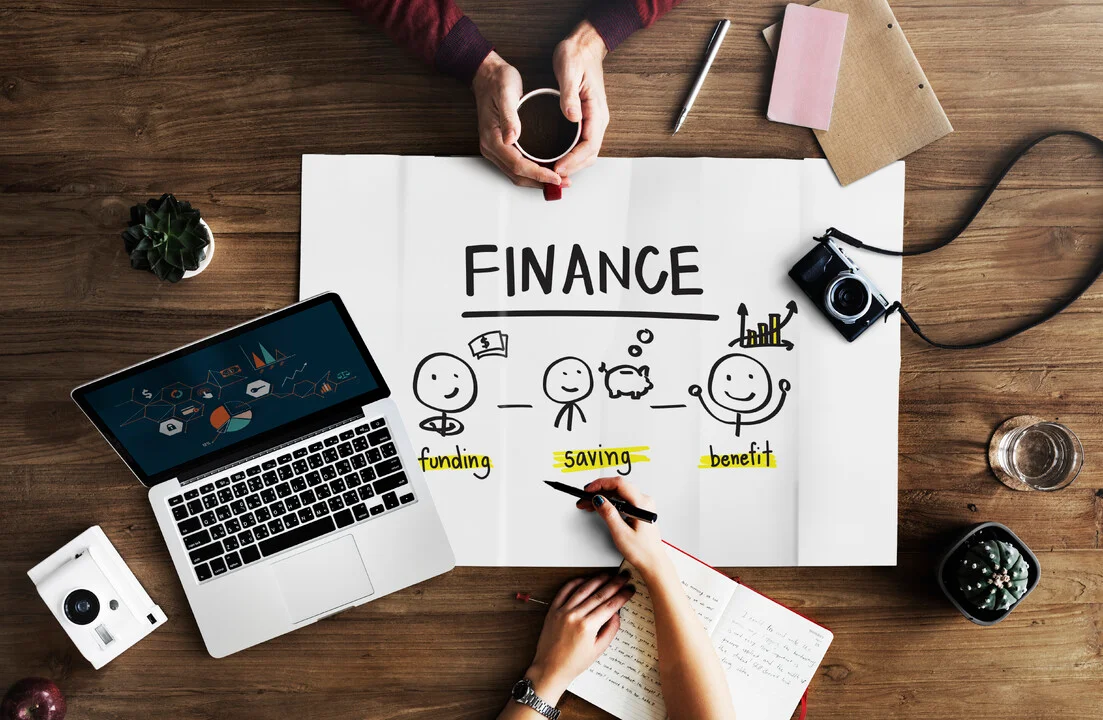Is Budgeting and Personal Finance the Same Thing? A Comprehensive Guide
We shall discuss budgeting vs. personal finance: key differences and how to master both for financial success you should wonder: Are personal finance and budgeting the same thing? Of surely not; personal finance and budgeting differ really noticeably. We will go over in great detail how personal finance and budgeting differ as well as their benefits and limitations. Reading the title might cause one to first think that both are related to money management. Still, they both handle various aspects of financial literacy.First of all, everyone seeking financial stability and progress has to know their differences. While budgeting emphasizes income and spending control, personal finance consists in saving, investing, and long-term planning.
This comprehensive guide will cover the important factors both of which cooperate to give a strong basis for financial success. At last, you will be more suited to maximize your financial goals for optimum effect.
What is Budgeting?
Budgeting is creating a detailed plan to manage your income and expenses. It’s a road map that guides your financial decisions daily, weekly, and monthly.
Key elements of budgeting are:
- Income tracking: Knowing how much money you generate from several sources, including your employment, side projects, or passive income.
- Expense categorization: Separating your spending into savings, entertainment, housing, and food categories
- Setting financial goals: Saving money for particular uses, such debt pay-off or an emergency fund creation.
Among the well-known free budgeting tools and apps are YNAB (You Need a Budget), Mint, and Every Dollar. These instruments automate spending tracking, therefore enabling you to follow your financial strategy.
Maintaining a neat budget allows you to better manage your money and avoid common errors like overspending.
What is Personal Finance?
Personal finance is the whole control over your financial resources. It goes well beyond budgeting and addresses more broadly related subjects of financial management.
Key components of personal finance include:
- Investments: Investing in stocks, bonds, mutual funds, or real estate will allow one to build wealth.
- Savings: Setting up money for long-term goals, crises, and immediate needs helps one be ready.
- Retirement planning: Contributing to accounts like 401(k)s, IRAs, or pension plans helps prepare for life after employment.
- Debt management: Debt management means planning to reduce and eventually eliminate debt, including mortgages, credit card debt, and student loans.
- Tax planning: Using solid financial planning, credits, and deductions helps to lower tax load.
Moreover, highlighted in personal finance is the need for financial knowledge. Making wise choices calls both knowledge of concepts such inflation, risk management, and compound interest.
Budgeting stresses short-term, quick planning; personal finance is long-term planning that defines your financial condition.
Key Differences Between Budgeting and Personal Finance
Though they are connected, personal finance and budgeting money serve different purposes and have different scope:
For a realistic example: Your budget lets you split your $4,000 monthly for savings, rent, and groceries. On the other hand, personal finance determines how much you should fund your 401(k) or use toward debt pay-off.

Why Budgeting Is Essential for Personal Finance
Budgeting is the foundation of personal finance. Without knowing your income and expenses, reaching more broad financial goals is difficult. Budgeting supports personal financial situations as follows:
- Helps achieve financial goals: Whether you are getting ready for a down payment or clearing credit card debt, a budget guarantees effective use of resources, therefore enabling you to reach your objectives.
- Builds saving habits: Regular savings made possible by consistent budgets help you build an emergency reserve or increase your wealth.
- Improves debt control: Monitoring your spending helps you find areas where you might cut back and reallocate money to lower debt.
For example, you might modify your budget to prioritize paying off a high-interest loan if you monitor your expenditures and find you are overspending on dining out.
- The Broader Role of Personal Finance: Beyond just budgeting, personal finance includes long-term financial planning and wealth-building techniques. Key areas include:
- Wealth accumulation: Wise investments can gradually increase your net worth. Tools such as investment platforms or robo-advisors make this possible for beginners.
- Tax strategies: Good tax preparation reduces your tax load so that you may keep more of your income.
- Estate planning: Estate planning, which involves wills, trusts, and powers of attorney, guarantees that your assets will be dispersed according to your preferences, thereby preparing for the future.
Unlike budgeting, Personal finance develops a road map for long-term success. Personal finance covers, for instance, saving money for a child’s education or buying life insurance.

Common Misconceptions About Budgeting and Personal Finance
Many false ideas about personal finance and budgeting cause bad financial choices. Let’s clear some of the most often-held misunderstandings:
- Budgeting is restrictive: Some people believe budgeting restricts their freedom to savor life. But planning gives you clarity and control, so you may deliberately spend money on the things that are important to you. For instance, allowing money for hobbies or travel within your means lets you enjoy these pursuits guilt-free.
- Personal finance is only for the wealthy: This myth often prevents those with low salaries from starting a financial planning process. Regardless of income range, everyone depends on personal money. By wisely managing their money, those with lower salaries can avoid debt and gradually create financial security.
- You can’t invest unless you’re debt-free: You don’t have to wait to start investing, even if paying off high-interest debt should be the first concern. Participating in an employer-sponsored retirement plan, such as a 401(k), for example, might yield long-term advantages even as you concentrate on debt reduction.
- Budgeting takes too much time: Modern technology has made developing and maintaining a budget simpler than ever. Budgeting applications and tools automate most tasks and let you monitor spending and savings with little effort. A few minutes a week is often enough to keep on top of your budget.
- Once you set a budget, it’s fixed: Budgets should be flexible and changeable. Unexpected costs, income changes, and life events could require revisions. Reviewing and changing your budget often guarantees that it stays relevant to your objectives and is efficient.
Debunking these misconceptions will help you approach money management more informedly and with more empowerment.
Practical Tips to Balance Budgeting and Personal Finance
Including budgeting in your financial plan demands both innovative tools and relentless effort. Here are feasible recommendations:
- Use technology: Apps like Mint and Personal Capital can help you track expenses, invest, and plan your retirement.
- Set SMART goals: Develop specific, measurable, logical, relevant, and time-bound goals for your finances.
- Automate savings and investments: Arrange automatic payments to investment portfolios or savings accounts to generate wealth.
- Review regularly: Review your financial strategy and budget once a month to modify for changes in income or spending.
These practices guarantee that personal finance and budgeting collaborate to maintain your financial welfare.
- Benefits of Understanding Both Concepts: Understanding the distinctions between personal finance and budgeting will provide various benefits:
- Better decision-making: Knowing when to prioritize short-term budgeting against long-term planning will help you properly distribute resources.
- Financial clarity: Understanding your financial situation helps you to relax and boost confidence.
- Goal achievement: A well-balanced strategy guarantees your path to fulfill present needs and future goals.
For example, budgeting for regular costs frees up money to invest in a retirement account, securing your financial future.

Concluding Is Budgeting and Personal Finance the Same Thing?
Two sides of money management are budgeting and personal finance. While budgeting focuses on the daily allocation of resources, personal finance addresses a broader approach to attain long-term financial goals. Laying a strong and rich financial future depends on both.
Take some time going over your current financial strategies. Are you tracking your expenses and looking forward to the future? Including budgeting into your own financial objectives can enable you to reach clarity and financial success.
FAQs
Can I manage personal finance without budgeting?
Managing personal finances without a budget creates difficulties. Budgeting offers the framework required to decide wisely on debt, investments, and savings.
Which should I focus on first: budgeting or personal finance?
Budgeting will help you control your income and spending. Once you have a clear grasp, you can widen your attention to incorporate personal financial planning techniques.
What tools can help me with both?
Budgeting and tracking more general financial objectives are aspects of tools including Mint, YNAB, and Personal Capital.
Combining these ideas can help you to develop a sensible and efficient method of handling money.